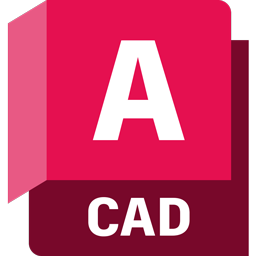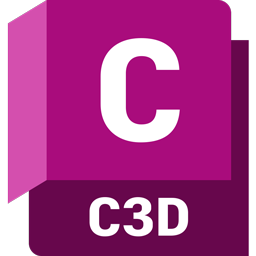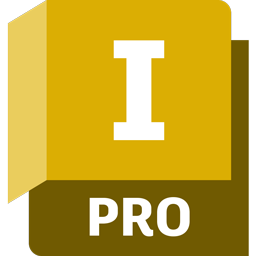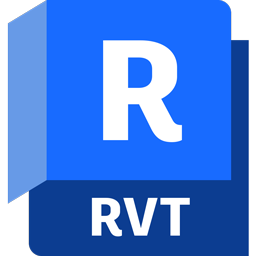Individuals who invest in building their knowledge and skills enjoy benefits such as earning more money, finding more fulfilling jobs, and feeling more confident in their capabilities. Employers who support employee upskilling see higher quality work output and improving employee retention rates.
Be inspired by other Autodesk users who have gone through the process of preparing for and taking the Autodesk Professional Certification exams. Click on the arrow next to each name here below to read more

Esam Azzam AL Azzam, Omniplan, Jordan
Autodesk Certified Professional in Revit Architecture
“Many job postings in fields where Autodesk software is used specify certification as a desired or required qualification. Holding Autodesk certification can broaden the range of job opportunities available to individuals and increase their chances of landing interviews and job offers.”
In the AEC sector, the need to modernise and improve workplaces is increasingly converging with the march of digital transformation. Around the world digital technologies, such as Building Information Modelling (BIM) and project management software, have become indispensable tools across the industry. They’ve proven their worth – they’ve shown how they can enhance efficiency, reduce costs and improve project outcomes.
As a BIM Manager, Esam hears from employers across the sector about the need from their staff to demonstrate they have the skills and knowledge to capitalise upon these latest technologies. Industry-recognised certifications and credentials show they have the requisite skills and expertise need to perform in their roles.
“Certification serves as an objective validation of an individual’s proficiency in using Autodesk software. This validation can differentiate them from others in the job market, demonstrating to employers their competence and expertise. In competitive industries where proficiency in Autodesk software is valued, certification can give candidates a significant advantage over non-certified applicants. It can make them more attractive to employers seeking candidates with verified skills and qualifications.”
Certification benefits for businesses and individuals alike
Esam highlights how clients and employers view certifications positively, seeing them as a mark of competence and proficiency in a particular skill or technology:
- Assurance of competence: Employers and clients appreciate certifications as they provide assurance that the individual possesses the necessary knowledge and skills to perform the job effectively. It serves as a validation of the candidate’s capabilities and reduces the risk associated with hiring or contracting.
- Quality and consistency: Certified professionals are often perceived as being able to deliver higher quality work consistently. Employers and clients value this assurance, especially in industries where accuracy, precision, and reliability are paramount.
- Credential recognition: Certifications from reputable organizations, such as Autodesk, carry weight in the industry and are recognized as valuable credentials. Employers may prioritize candidates with relevant certifications when recruiting or selecting contractors for projects.
- Competitive advantage: Having certifications can give candidates a competitive edge in the job market. Employers may favour certified individuals over non-certified candidates, especially when multiple candidates have similar qualifications and experience.
- Meeting requirements: In some cases, clients may specifically require contractors or consultants to hold certain certifications as a prerequisite for bidding on projects or providing services. Being certified can help professionals meet these requirements and qualify for opportunities they might otherwise miss.
- Professional development: Employers value candidates who invest in their professional development and demonstrate a commitment to staying current in their field. Certifications indicate a proactive approach to learning and skill enhancement, which is attractive to employers looking for motivated and dedicated team members.
As an Autodesk Certified Professional in Revit for Architecture, Esam now has external industry-recognised validation of his skills. These certifications not only validate his mastery of the software, they also support him in his role as BIM manager.
Information about authorised training and certification programmes from Autodesk, can be found here.

Kenneth Tobechukwu Ugwuanyi, Costech, Nigeria
Autodesk Certified Professional in AutoCAD for Design and Drafting
“Similar to an engineering license, having certification is proof that you have met the minimum requirement to deliver without major casualty. First, it is a globally recognized and respected credential that demonstrates professionalism in the use of Autodesk software. It helps individuals stand out, therefore presenting the opportunity to showcase their skills to potential employers and partners. Second, knowing how to use software isn’t just enough, getting certified makes a difference. Third, in the academic area, certifications help clients and partners trust you with their knowledge acquisition journey.”
Modern workplaces are increasingly adopting digital tools to drive collaboration, increase efficiency and increase productivity. Across industries such as architecture and engineering, such a digital ecosystem can enable teamworking and cultivate a culture of learning and exploration.
Working as an application engineer, Kenneth recognises the need to be effective and efficient with his time. He highlights how applying the learnings from the Autodesk certification will help him save time and reduce repetition.
“I anticipate several improvements in efficiency and productivity. First, using the software, I will deliver more accurately at a reduced time. Second, I have a better understanding of the software’s capabilities and how to use them to my advantage. Third, collaboration is more effective and efficient with others who use the same software. Finally, I’ll have a greater sense of confidence and motivation as I move forward in my career.”
The certification process is proven to enhance proficiency in Autodesk tools, features and functionalities. Such certifications help to deepen understanding of processes, collaboration techniques, and improve problem-solving skills.
As an Autodesk Certified Professional in AutoCAD for Design and Drafting, Kenneth now has external industry-recognised validation of his skills. This certification is an assessment of how far he has progressed in his development journey, and help him to ensure he is providing the best possible service to users.
Working in a training environment, Kenneth recognises the value of skills development and certification to employees and employers alike:
“Many employers consider Autodesk certification a reliable indicator of an individual’s skill level and ability to use the software effectively. Certification can be a deciding factor when employers are choosing between candidates, especially for positions that require specific technical skills. Overall, having an Autodesk certification can be a valuable asset in the job market and can lead to better job opportunities and higher salaries.”
Kenneth prepared for the certification in a number of ways – accessing video modules on the certification module, the test practice and review of concepts with colleagues.
When asked about the process he said:
“It was an eye-opener, I was just not preparing, I was preparing with every single detail in mind. I never gave room for assumptions, I practiced every single step.”
His advice to others considering certification:
“The general rule is that practice makes perfect. The more you use the software, the more comfortable and proficient you’ll become. Don’t be afraid to experiment and explore the features and capabilities of the software – that’s how you’ll learn and grow as a user. And don’t forget to have fun with it – after all, design is supposed to be creative and enjoyable. Study hard, pay attention to details, ask questions, and believe in yourself.”
Certification benefits for businesses and individuals alike
Individuals who invest in building their knowledge and skills enjoy benefits such as earning more money, finding more fulfilling jobs, and feeling more confident in their capabilities. Employers who support employee upskilling see higher quality work output and improving employee retention rates.
Information about authorised training and certification programmes from Autodesk, can be found here.

Prashant Suresh Shinde, Grand International Company, Qatar
Autodesk Certified Professional in Revit for Mechanical
“The Autodesk certification serves as a tangible proof of my expertise in Revit, making me stand out to potential employers. It will enhance my credibility and open doors to more challenging opportunities in my career.”
With businesses being challenged to build teams that can keep up with the pace of technological change, many are investing in skilling and upskilling initiatives for their employees. Organisations are realising the benefits of this investment – improved quality of work, as well as productivity and efficiency gains.
Prashant, an Autodesk Certified Professional in Revit for Mechanical Design agrees:
“With the enhanced skills acquired during the certification process, I anticipate a significant improvement in my efficiency when working on mechanical projects. The ability to navigate and utilize Revit tools more effectively will contribute to increased productivity.”
The importance of preparing well for the test was reiterated by Prashant:
“The preparation process was challenging but rewarding. It required a comprehensive understanding of Revit for Mechanical design. The certification process itself was well-structured, providing a thorough evaluation of my skills.”
Prashant’s advice to others considering certification:
“…to thoroughly familiarize themselves with the specific requirements of the certification, invest time in hands-on practice, and leverage available resources such as training materials and practice exams. Additionally, networking with certified professionals and participating in relevant forums can provide valuable insights and support throughout the certification journey.”
As an Autodesk Certified Professional in Revit for Mechanical Design, Prashant now has external, industry-recognised validation of his mechanical design skills. Not only can he demonstrate proficiency in his current role, such a certification will help him stand out from the crowd throughout his career.
Ahmed Muharram Heteba, CAD MASTERS, Egypt
Autodesk Certified Professional in Revit for Architectural Design and Revit for Structural Design
“Certification not only validates your skills but also empowers you to stay relevant and competitive in the ever-evolving field of BIM and design.”
Workplaces across the AEC (Architecture, Engineering and Construction) ecosystem are being transformed by digital technologies. Employers across the sector need their staff to demonstrate they have the skills and knowledge to capitalise upon the latest technologies. Industry-recognised certifications and credentials offer validation of expertise and professionalism.
As an instructor, Ahmed is acutely aware of the impact technologies such as BIM (Building Information Modelling) are having on the transformation of the AEC sector:
“The certification process provided valuable insights into the latest updates and features of Autodesk software. It also emphasized the importance of staying adaptive in a rapidly evolving industry, fostering a mindset of continuous learning.”
Working with organisations and individuals across the sector on a daily basis, he highlights how they recognise the value of certification:
“Clients and employers often view Autodesk certification as a mark of competence and reliability. They tend to prioritize candidates or service providers with recognized certifications, as it ensures a certain level of proficiency and adherence to industry standards. When looking for BIM professionals or instructors it’s the first certification that comes in mind.”
The certification process is proven to enhance proficiency in Autodesk tools, features and functionalities. For those working in the AEC sector, Revit certifications help to deepen understanding of BIM processes, collaboration techniques, and improve problem-solving skills within the software.
Ahmed highlights the importance of preparation for certification, including how structured training can reap rewards:
“The preparation process was rigorous but rewarding. It involved in-depth study, practical application of skills, and hands-on experience with Autodesk tools. I also found the free Autodesk courses on the website to be very useful. Completing the certification was a validation of my expertise and a testament to the effectiveness of training programs at CAD MASTERS.”
Ahmed’s advice to others considering certification:
“…approach the certification process with dedication and a commitment to ongoing learning. Utilize resources, practice extensively, and understand the practical applications of the software. The certification not only validates your skills but also empowers you to stay relevant and competitive in the ever-evolving field of BIM and design.”
As an Autodesk Certified Professional in Revit for Architectural Design and Revit for Structural Design, Ahmed now has external industry-recognised validation of his skills. These certifications not only validate his mastery of the software, they also support him in his role training students and professionals in the AEC sector.
Information about authorised training and certification programmes from Autodesk, can be found here.





